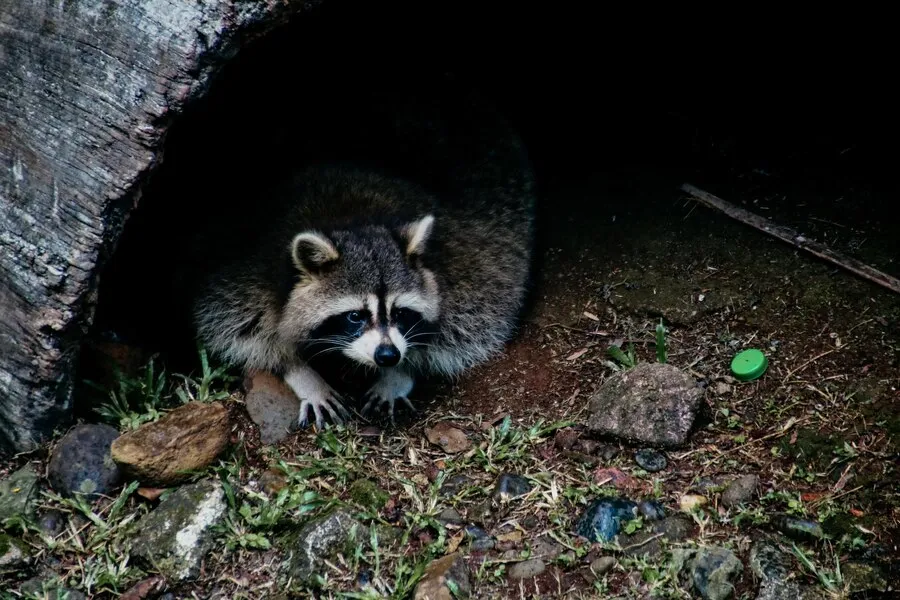Table of Contents
Key Takeaways:
- Learn effective and humane raccoon removal methods.
- Understand the importance of prevention and legal considerations.
- Gain insights into working with professionals for raccoon management.
Understanding Raccoon Behavior
Raccoons are intelligent and adaptable creatures often found in urban and suburban environments. These nocturnal animals are opportunistic feeders, so they are frequently seen rummaging through garbage or feasting on pet food left outside. Their curious nature and dexterous paws allow them to explore and manipulate various objects. Recognizing their behaviors is crucial for implementing effective safe raccoon eviction techniques, ensuring these animals are dealt humanely and effectively.
When addressing raccoon presence on your property, it’s essential first to observe signs of their activity. Look for evidence, such as overturned trash bins, paw prints, or pilfered gardens. Understanding these indicators can help determine the level of intervention required, guiding you to choose the best method for raccoon removal. According to urban wildlife management experts, adapting strategies to the specific habits of raccoons in your area is essential for the successful mitigation of urban wildlife management.
Secure Your Property
Securing your property is one of the most effective ways to prevent raccoons from taking residency in your yard or home. Start by ensuring garbage bins are tightly closed and cannot be easily opened by clever raccoon paws. Consider using animal-proof trash cans or securing lids with clamps. Check your home for potential entry points such as open chimneys, gaps in the roof, or openings under decks, and seal them appropriately. Simple modifications like these dramatically reduce the appeal of your property to raccoons, keeping them at bay.
Humane Trapping Techniques
Humane trapping is a preferred method for dealing with raccoons that have already made themselves home. When employing traps, select live-capture traps that do not harm the animal. Place these traps in areas with evident raccoon activity, using food as bait to attract them into the trap. Once caught, check local regulations regarding relocation; many areas have specific rules about where captured wildlife can be released. Always consult with wildlife authorities to ensure compliance with local laws and to obtain assistance if needed.
Use of Natural Deterrents
Incorporating natural deterrents can be an effective and environmentally friendly way to discourage raccoons from your property. Raccoons are sensitive to certain smells, making them averse to strong scents like vinegar or ammonia. Soaking rags in these substances and placing them around entry points can deter raccoons. Additionally, motion-activated lights or sprinklers can startle nocturnal visitors, preventing them from becoming too comfortable in your vicinity. These deterrents provide a non-invasive means to maintain a raccoon-free environment.
Also Read: Keeping Your Car Fresh with Kids and Pets: Easy Tips for Busy Families
Professional Wildlife Services
For more severe raccoon problems or when preventive measures fail, it may be necessary to call in professional wildlife control services. These experts specialize in wildlife removal and can handle raccoon issues carefully. They are trained in humane removal techniques and are knowledgeable about local legal requirements for wildlife management. Hiring professionals eliminates the stress and potential risks of handling wildlife alone. It ensures all actions are safe, ethical, and compliant with regional wildlife laws.
Working with professionals resolves immediate raccoon issues and provides advice on long-term preventive measures. They can offer recommendations tailored to your property and provide insights into raccoon behavior that could be useful for future reference. Engaging with experts in wildlife management, such as those highlighted in Raccoon Facts and Conservation, guarantees a well-rounded approach to dealing with wildlife effectively.




